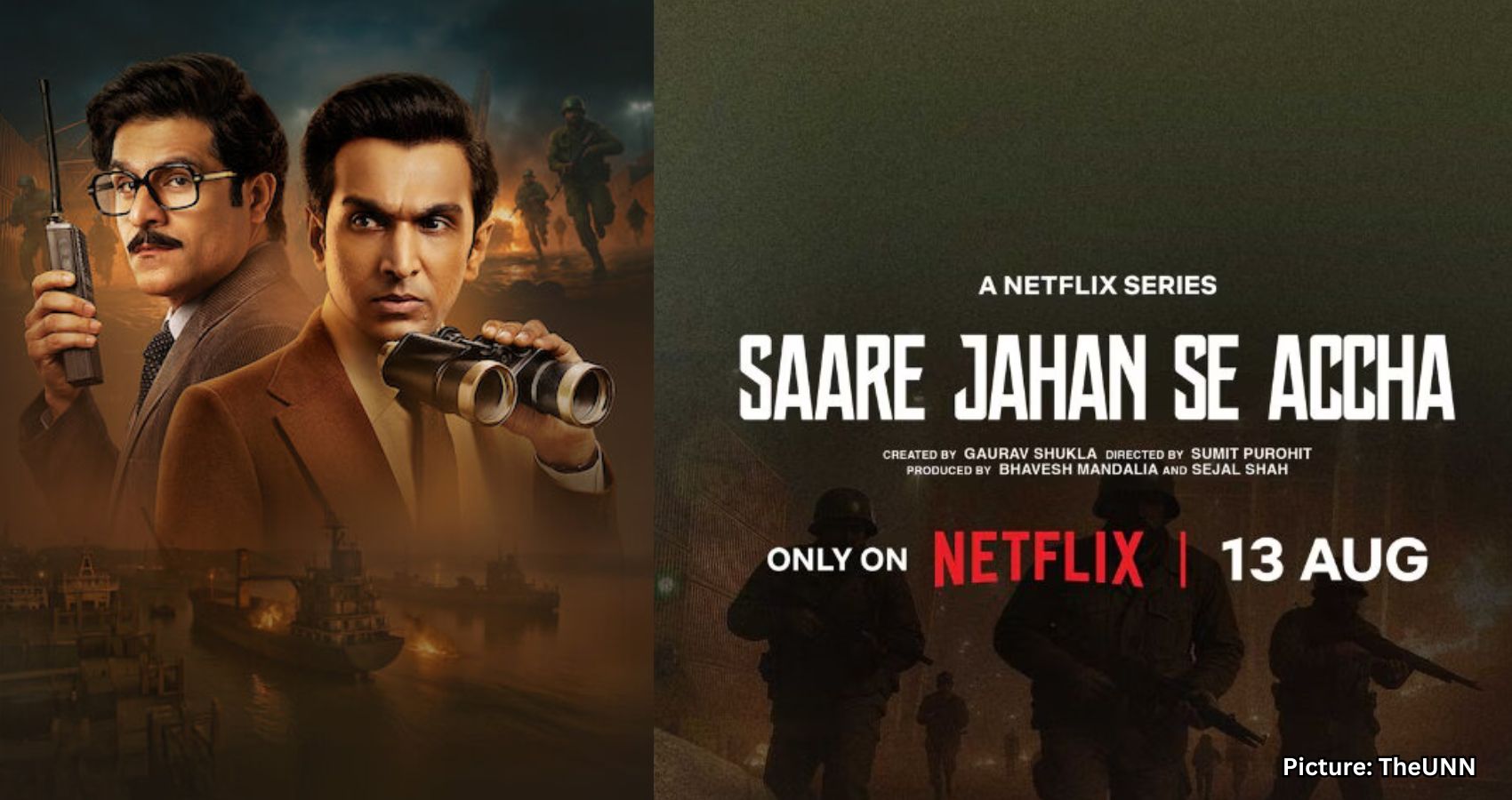Netflix’s ‘Saare Jahan Se Accha: The Silent Guardians’ explores the covert struggles of India during the 1960s and 1970s, intertwining history with espionage in a gripping narrative.
Released to coincide with India’s 79th Independence Day, Saare Jahan Se Accha: The Silent Guardians on Netflix is a meticulously crafted spy thriller that immerses viewers in the covert struggles of a young nation during the 1960s and 1970s. The series takes its name from the 1904 patriotic Urdu song, Saare Jahan Se Accha (or Taranah-e-Hind), written by Allama Muhammad Iqbal. Season 1 paints a vivid portrait of the conflicts arising from colonialism among nations intertwined by shared histories, literature, culture, and poetry.
Created by Gaurav Shukla, the series is rooted in historical fiction, drawing from real events that shaped India’s trajectory. Central to the narrative is the life and mysterious death of Dr. Homi J. Bhabha, often referred to as the “father of India’s nuclear program.” A physicist educated at Cambridge, Bhabha was deeply involved in nuclear research, envisioning atomic energy as the cornerstone of India’s industrial future. With the support of J. R. D. Tata, he established the Tata Institute of Fundamental Research (TIFR) in 1945 and later the Atomic Energy Establishment at Trombay. His untimely death in the 1966 Mont Blanc plane crash significantly altered the course of India’s nuclear ambitions. In his memory, TIFR was renamed the Bhabha Atomic Research Centre (BARC), serving as a pivotal backdrop for the espionage saga that unfolds in the series.
Equally significant is the establishment of the Research and Analysis Wing (R&AW), India’s foreign intelligence agency, founded in 1968 under R. N. Kao. Following Bhabha’s death, India’s security vulnerabilities became glaringly apparent. R&AW’s mission was clear: to safeguard national sovereignty, gather intelligence abroad, and counter Pakistan’s nuclear aspirations. The Silent Guardians dramatizes these formative years through the character of Vishnu Shankar, a diplomat on a covert mission in Islamabad. The series pays tribute to the sacrifices of operatives who worked in secrecy, often at great personal cost and without recognition.
At the heart of the series is Vishnu Shankar, portrayed by Pratik Gandhi, a perceptive and intelligent R&AW officer who skillfully balances the demeanor of a diplomat with the cunning of a seasoned spy. Gandhi delivers a magnetic performance, characterized by a sharp, understated presence that conveys quiet nobility. His calm wit and confidence inspire trust, whether in tender moments with his wife Mohini, played by Tillotama Shome, or in tense yet humane interactions with his colleague Sukhbir.
The supporting cast enhances the narrative’s depth. Kritika Kamra shines as Fatima Khan, a courageous Pakistani journalist navigating the treacherous waters of truth and survival. Suhail Nayyar’s portrayal of Sukhbir, alias Rafiq, captures a blend of warmth, wit, desperation, and loyalty amid his perilous double life. Sunny Hinduja delivers a chilling performance as Ali Murtaza Malik, the ruthless ISI chief, whose ability to detect a spy with a mere handshake adds tension to the storyline. Tillotama Shome brings depth to Mohini, the conflicted yet devoted wife of a spy, while Rajat Kapoor embodies R. N. Kao with calm authority and resolve.
Visually, cinematographers Dmytro Nedria, Debojeet Ray, and Jay I. Patel effectively capture the vibrant streets of Karachi and Islamabad, the frenetic energy of stock exchanges, shadowy alleys, and smoky Parisian bars where an ISI operative encounters a carefully laid trap. The editing by Aarif Sheikh maintains a tense, binge-worthy pace across the six-episode arc, while Ketan Sodha’s score amplifies the urgency of each mission.
One of the series’ notable achievements is its nuanced exploration of patriotism. For the Indian characters, patriotism manifests as a collective duty, characterized by quick thinking, strategic foresight, and the willingness to sacrifice for the nation’s well-being. In contrast, the portrayal of patriotism across the border is marked by individual bravado—ego-driven, reckless, and intertwined with personal pride and national ambition. This juxtaposition elevates the narrative beyond a conventional spy-versus-spy conflict.
As the final credits roll, the series leaves viewers with a sobering reminder of the profound human stakes behind historical headlines. From the explosion that claims Bhabha’s life to the destruction of a French shipment carrying radioactive material, and the sacrifices of informants like Brigadier Naushad, who provides crucial intelligence on Pakistan’s nuclear procurement before meeting a tragic fate, The Silent Guardians underscores that espionage is often waged in silence, far from public memory, yet with consequences that shape nations.
Saare Jahan Se Accha: The Silent Guardians evokes memories of family visits to the beautifully manicured BARC gardens in Chembur, stirring a deep sense of national pride. This narrative of loyalty, betrayal, and the invisible guardians shaping India’s destiny is compelling. With gripping writing, stellar performances, and a captivating protagonist, it stands out as a must-watch espionage thriller.
Source: Original article

